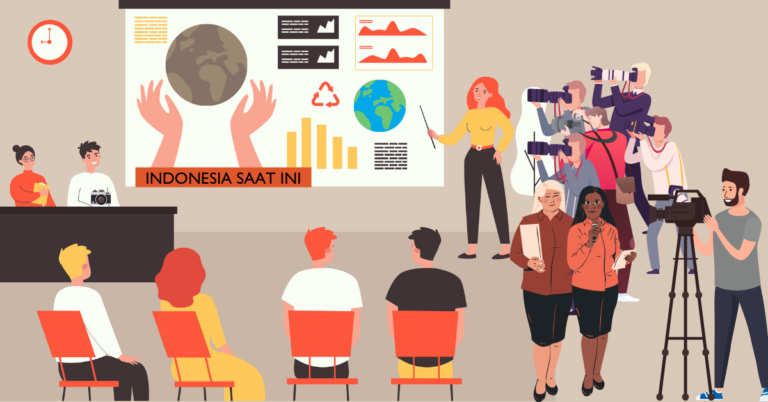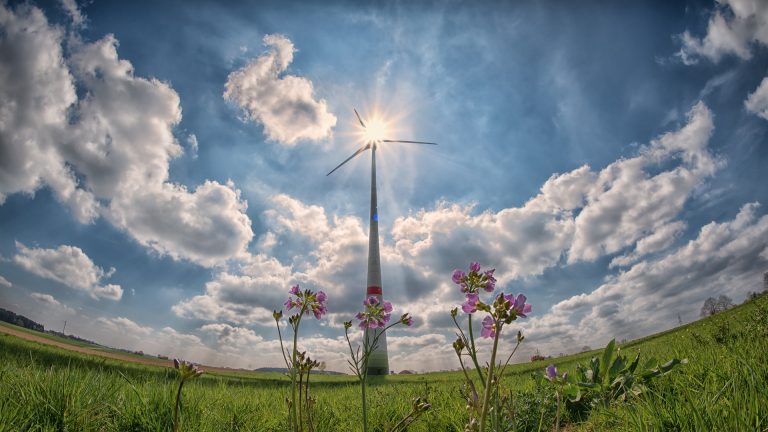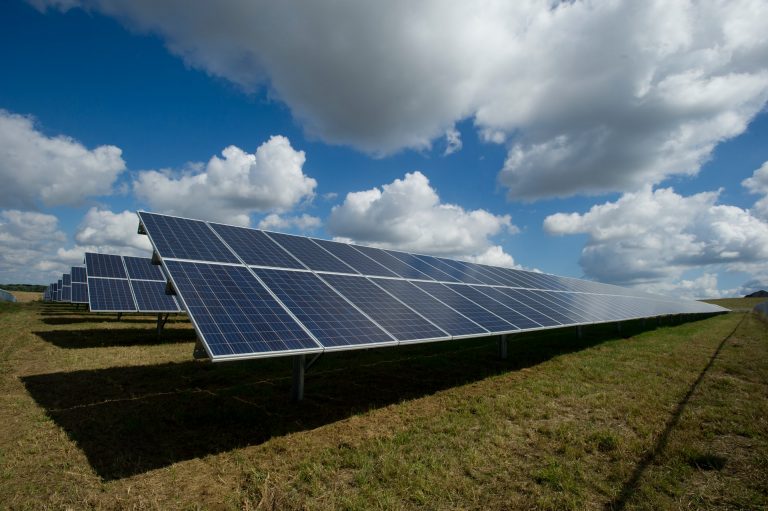![]()
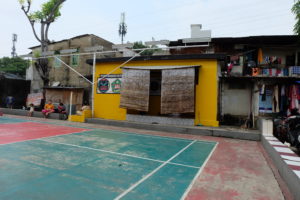
Narrow alleyways lead to a small badminton court nestled between the humble housing and the neighbourhood mosque of Petamburan, part of the central Jakarta district of Tanah Abang. A dead tree with a teddy bear hanging from it stands on one side of the badminton court, and a pole for the badminton net stands on the other, which someone is using to air their laundry. While the badminton court is only big enough for a few players, between 25 and 50 local children fill the space during weekends.
“We no longer use the badminton court for sports. When the pandemic began, we turned it into a Learning Park for children,” says Mikhail Adam – known in the community as Adam, a native of Petamburan, and a student at Universitas Kristen Indonesia (UKI).
Children from the community have been gathering here for more than a year now, for reading sessions using any age-appropriate materials that Adam and the other volunteers could get their hands on, such as comics and fairy tales. After the reading sessions, the volunteers taught Maths, English, or other subjects that the children needed help with.
To spice up the sessions, the kids play soccer instead. If it’s raining, the activities move indoors to the local mosque.
Adam points out that the Learning Park is a community effort and is owned by the community.The community have been helping to raise funds for the Learning Park, including by donating used cooking oil![]() .
.
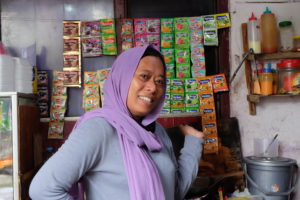
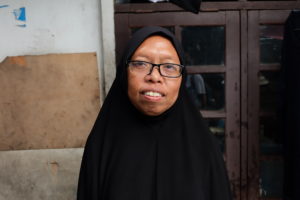
“While we knew before that used cooking oil was bad for our health, we didn’t know that it had any value and could be collected and sold. We also used to throw it out. When we learnt this, we decided to start collecting used cooking oil to fund our kids’ Learning Park. So, I started collecting my oil in a bottle and gave it to Adam. There is no harm in donating, right? The way I see it, it’s a charitable donation,” housewife Lis Sumarini gleefully explains. Lis lives near the badminton court, and her child attends the weekly Learning Park program.
Another member of the Petamburan community, Nurhasanah, who is sitting next to Lis also spoke of the benefits of the Learning Park. She owns a small business selling fried snacks to the children and has been collecting the used cooking oil from both her household use and the kiosk for the initiative.
“When our children had to study at home after the pandemic began, it increased our workload as we needed to support them. The Learning Park has relieved us of one day of this duty because the kids have something else to do outside,” she said. Nurhasanah then turned to Lis and asked, “Who do you think got smarter when the children had to study from home? Us or the children? I think it’s us.” Lis replied, “Yeah, we should be the ones getting promoted to the next grade.”
Lis and Nurhasanah are just two of the 65 housewives and small business owners who have been collecting their used cooking oil since November 2020. The community has so far gathered 180 liters of used cooking oil, which is stored in a variety of large containers in front of Adam’s house.
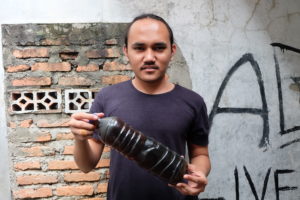
Communities across Indonesia should be following the good example of Petamburan and collecting used cooking oil for the environmental, economic and health benefits. It could be used right now to replace the palm oil used in biodiesel, considering that using palm oil to produce biodiesel, on top of a multitude of food and cosmetics products, increases demand for the commodity and the risk of deforestation to grow more palm oil to meet the demand. It has been estimated that an additional 15 million hectares of palm oil plantations are needed to supply the extra demand for biodiesel. Also, as used cooking oil is usually thrown down the drain, communities such as Petamburan that collect and sell it for reuse are helping to reduce the local pollution that results from disposing of it locally.
Collecting used cooking oil can have other economic benefits as it can also be used to make candles and soaps. Adam has been using it to make aromatherapy candles to sell to his lecturers and friends for IDR 25,000-30,000 – much cheaper than the usual retail price of around Rp 50,000 – to help fund Petamburan’s Learning Park. The challenge, however, is to produce it consistently to meet the market demand. After Adam made the first batch of candles, he has been struggling to make more.
When Lis learnt that used cooking oil could also be used for candles and soap her eyes lit up. “Really? Can we be taught how to make soap out of used cooking oil?” Then the women chattered between themselves about how soapmaking know-how could help them save money on buying new soaps, as well as earning extra money from selling their products as their is always a demand.
Such fervor to maintain the community space – the Learning Park – reveals another benefit of collecting used cooking oil: the positive impact for the community. Petamburan serves as a great example to show that community, economic, and environmental interests can go hand in hand, rather than clashing.

